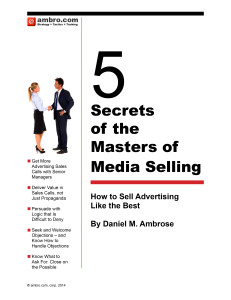What is Challenger Selling? And How Does it Help Sell Advertising?
Challenger Selling is simply the re-booted and re-packaged Structured Selling process that made Ziff-Davis famous. By presenting a “challenge” that the customer is facing, like losing market share or missing sales, providing important information about that challenge, the sales person can better capture the attention of any prospect to engage them in a sales conversation that leads from the challenge — read their needs — to the solution being sold.










